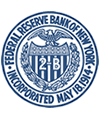The risk of “fire sales” of tri-party repo collateral in the US – rapid sales of assets in large amounts that temporarily depress their market prices – remains a live issue, according to the Financial Stability Oversight Council’s (FSOC) 2014 annual report to Congress released last week.
This view was given further heft in comments by Susan McLaughlin, senior vice president in the markets group at the Federal Reserve Bank of New York, at the Euroclear Collateral Conference in Brussels on 12 May.
Established under the Dodd-Frank Act, the FSOC is charged with identifying risks to the financial stability of the United States; promoting market discipline; and responding to emerging risks to the stability of the US financial system. It brings together federal financial regulators, state regulators, and an independent insurance expert appointed by the US President.
According to the FSOC report, “The possibility of tri-party repo collateral fire sales still poses significant risks for the financial system. Policymakers continue to examine ways to minimise potential tri-party repo spillover effects if such fire sales were to occur.”
The risk has long been recognised, but unlike other aspects of the tri-party market in the US, where risks were identified post-crisis, the potential for fire sales remains a tough nut to crack. In a May 2010 whitepaper on tri-party repo infrastructure reform, the Federal Reserve Bank of New York identified three specific risks that needed to be addressed: the market’s excessive reliance on clearing-bank provision of intraday credit to complete settlement, poor liquidity and credit risk management practices on the part of various classes of tri-party repo market participants, and the absence of any mechanism to mitigate the risk of fire sales of collateral in the aftermath of a large-dealer default.
A New York Fed Staff Report last year drew a distinction between “fire sales of assets by a dealer who, facing a run that could lead to default, sells securities to generate liquidity, and fire sales of assets by repo investors after a dealer’s default has occurred”. The report found limited tools available to mitigate the risk of pre-default fire sales and “that no established tools currently exist to mitigate the risk of post-default sales”.
While the tri-party repo market in the US is now characterised by better risk management, better risk recognition and better risk pricing, McLaughlin told delegates to the Brussels conference, “Fire sales remain a challenge”. She described the issue as a “collective action problem in some sense” and one less conducive to a supervisory approach, since it involves a “structural propensity” on the part of some market participants to run in the face of an unfolding stress event that makes the headlines. “We’ve called on the industry to think hard about this and we’re hopeful that the industry will work with us to solve it,” she added.
